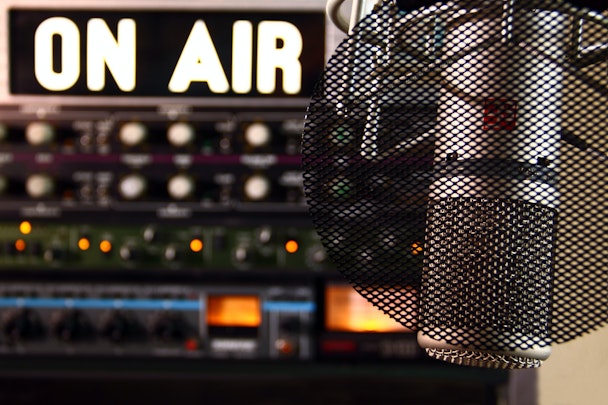All is not well in radioland. For creativity, it is now 'Boom' or bust
If you haven’t been tuned in, all is not well in radioland. Creative stalwart Paul Burke explains the situation and reveals how there’s still hope for the UK scene As part of The Drum’s Entertainment Focus

The BBC and The Radiocentre are fighting over the former’s plans to launch a few new radio stations. Most of them are fairly inconsequential but it’s the proposed extension to Radio 2 – let’s call it ‘Radio 2 Extra’ – that’s causing consternation.
Everything was fine, apparently, until Radio 2’s current controller, Helen Thomas, severely damaged the UK’s most popular station in a vain attempt to attract a younger audience. She infamously axed Steve Wright from the afternoons and oversaw the departures of Ken Bruce and Simon Mayo from the station. Her tenure has proved such a disaster - and the loss of listeners so calamitous - that the BBC was faced with a choice. Either sack her or launch a new station to claw back the Radio 2 faithful.
Guess which one it has chosen?
The Radiocentre is understandably furious. Unlike the stations it represents, the BBC has no (or few) commercial pressures, so, using taxpayers’ money so it can open a new radio station on a whim really isn’t fair.
Though in the interests of balance, let’s just turn to the Radiocentre for a moment and examine what and whom it represents. While it does have a valid point about unfair competition, it’s still very hard to feel sorry for Radiocentre. It was originally known as the Radio Advertising Bureau, with a remit to encourage clients to use radio and to promote creativity in radio advertising.
It was an organization close to my heart, but now it’s little more than a lobby group funded by Global and Bauer. Between them, a duelling pair that practically own every commercial radio station in the UK. It no longer promotes creativity, even abolishing the Aerial awards, once a fantastic monthly showcase for the nation’s best radio ads. It did so much to help young creatives.
Creativity is out, and lobbying is in, and if you don’t believe me, take a lengthy look at Matt Payton, CEO of the Radiocentre, Twitter will yield no creative talk. That’s the body that once promoted creativity in radio advertising. See if you can find a single post that mentions either creativity or radio advertising. You won’t, but you are welcome to try. As lobbyists for Global and Bauer, The Radiocentre is concerned that Radio 2 Extra will pose a threat to commercial oldies stations like Bauer’s Absolute 50s, 60s & 70s, as well as Global’s Heart 70s and Gold stations.
And they’re right to be concerned, but that’s only because these stations are... what’s the word I’m looking for… dreadful. Costs have been cut to the bone. For around 20 of their 24 hours, these “stations” don’t even have presenters, just a computer churning out the playlist from hell. Actually, they’re worse than that - each one comprises a tiresome slew of overplayed oldies interspersed with cheesy pre-recorded idents ’Your non-stop music marathon.’ These ads are so bad that they shame our industry, the sort of ads that Radiocentre once worked so hard to improve.
Yet despite all this, we still need to support the Radiocentre’s lobbying against the BBC, if only because of one station – Boom Radio. Boom is a small, independent commercial station that has taken the airwaves by storm, attracting the listeners that Radio 2 so foolishly disregarded.
It’s one of the few stations not owned by Global or Bauer, and unlike their oldies stations, it employs proper live presenters for 20 hours a day. What’s more, those presenters are allowed to play a diverse and interesting mix of music. Not surprisingly, this has proved hugely popular with listeners, which, unfortunately, is why Boom has the most to fear from Radio 2 Extra. The BBC has the cash and the clout to try and put it out of business, and we, as an industry, must fight tooth and nail to make sure it doesn’t.
Boom is the very soul of our industry - an independent enterprise funded by advertising. It’s who we are, it’s what we do. If we don’t stand up for them, what are we even here for?
We cannot allow Boom to be bullied by the BBC, which is everything we’re not: bloated, inefficient and shielded by subsidy. So clients and agencies, come on. Get behind the Radiocentre and plant an explosive under the BBC’s grand and greedy radio plans. Then, hopefully, we can stand back and listen for the ‘Boom!’

